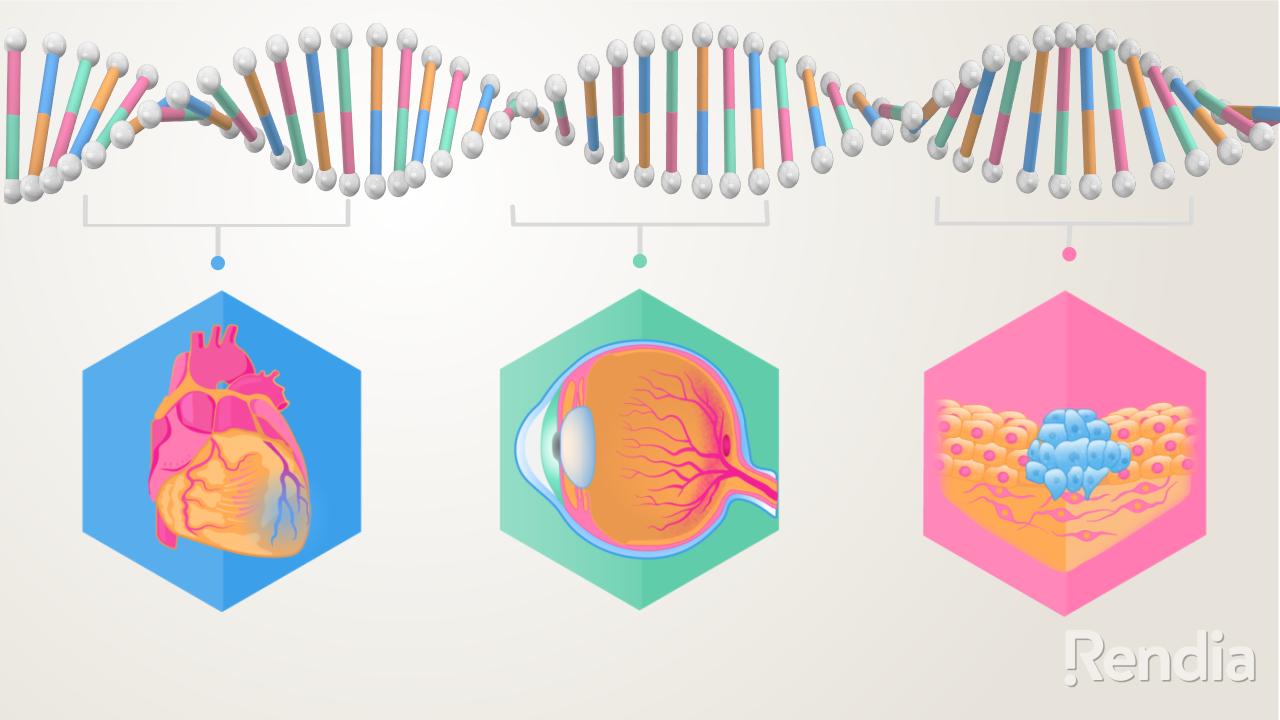FDA approves new treatment that restores vision in patients with congenital blindness
In December, the FDA made history by approving a gene therapy for a rare inherited eye disease that causes blindness. This is the first gene therapy to be cleared in the U.S. for treatment of the eye or any inherited disease. And it’s only the third gene therapy approved for use in the U.S.; the other two therapies to gain approval earlier in 2017 treat blood cancers.
For patients with retinal dystrophy due to a mutation of the RPE65 gene, the new gene therapy, known as Luxturna™, is nothing short of miraculous. The one-time treatment reverses the severe visual impairment that affects sufferers from infancy, which can eventually lead to blindness, reported CNN.
The implications of the FDA’s historic decision are significant. The Washington Post stated, “The approval signals a new era for gene therapy, a field that struggled for decades to overcome devastating setbacks but now is pushing forward in an effort to develop treatments for hemophilia, sickle-cell anemia and an array of other genetic diseases.”
Seeing stars for the first time
Luxturna™ (voretigene neparvovec), made by Spark Therapeutics, is a liquid that works by supplying a normal RPE65 gene to retinal cells through a microscopic injection into the eye.
Clinical trials have shown that the gene therapy restored vision for people with Leber congenital amaurosis (LCA).
Clinical trials have shown that the gene therapy restored vision for people with Leber congenital amaurosis (LCA) caused by mutations in the gene RPE65. “Study participants with severe vision loss reported putting away their navigational canes, seeing stars, being able to read, and recognizing faces of loved ones,” reported the Foundation Fighting Blindness. The treatment is also designed to work for people with retinitis pigmentosa (RP) caused by RPE65 mutations.
Awareness of the importance of genetic testing and therapy is growing not only among specialists, but also among general ophthalmologists and optometrists, wrote Christine Kay, M.D., in an article for Retinal Physician. “Genetic testing has become a critical component of diagnosing and managing the patient with inherited retinal disease (IRD).”
“Retina specialists are increasingly expected to be aware of updates in the field of retinal genetics and retinal gene therapy and should be able to facilitate discussions with patients involving the importance of diagnosis, confirmation of genotype, and options for relevant clinical trials,” she stated.
Retina specialists, as well as general ophthalmologists and optometrists, need to be prepared to answer patients’ questions on genetic testing and therapies.
While it is not realistic to expect every eye care specialist to be able to diagnose and/or treat IRD, Dr. Kay does think that being prepared to answer patients’ questions on genetic testing and therapies is part of providing them with the best care. Read her article, “Logistics of Genetic Testing: An Overview for Retina Specialists,” to find out more.
Addressing genetic testing with patients
The future of genetic testing and therapy is exciting. Today, genetic testing is available for over 2,000 rare and common conditions, according to the NIH. Genetic tests such as those that detect inherited eye disease can have a positive effect on patients and their families, according to the American Academy of Ophthalmology (AAO).
“When properly performed, interpreted, and acted on, genetic tests can improve the accuracy of diagnoses and prognoses, … can reduce the risk of disease occurrence or recurrence in families at risk,” and can even help facilitate better outcomes for patients.
Skilled counseling should be provided to all individuals who undergo genetic testing, advises the American Academy of Ophthalmology.
However, there are risks to genetic testing, such as creating feelings of anxiety and guilt in patients, or affecting their decision to have children, noted the AAO. “For these reasons, skilled counseling should be provided to all individuals who undergo genetic testing to maximize the benefits and minimize the risks associated with each test.”
For more on this topic, see Talking to Your Patients About Genetic Testing
As exciting as the new gene therapy is, it’s important to note that it’s extremely expensive. NBC News reported in January that Luxturna™, whose results are not permanent, will cost $850,000. Even with health insurance benefits, costly treatments are out of reach for many patients.
For a related article, see How to Help Patients Navigate Health Care Costs
Paving the way for treatment of other inherited blindness diseases
While the true impact of Luxturna™ is yet to be seen, the historic approval “opens the door for durable, potentially curative treatments for inherited blindness diseases,” according to the American Society of Gene & Cell Therapy (ASGCT).
“This is a class of diseases for which there have been no pharmacological treatments,” said Katherine A. High, M.D., co-founder, president, head of research and development at Spark Therapeutics and past president of ASGCT.
Get in touch with us today to learn how to educate patients about other commonly inherited eye conditions such as strabismus, astigmatism, glaucoma, and age-related macular degeneration.

